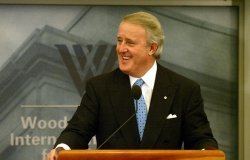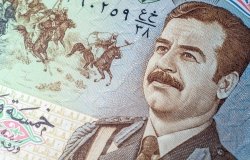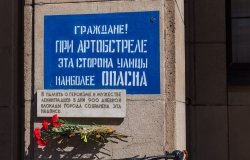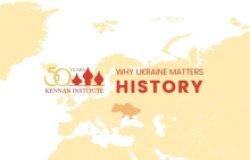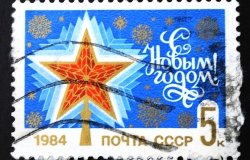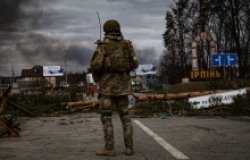The Bucharest Summit: Romania's Perceptions of NATO's Future
His Excellency Adrian Vierita, Romanian Ambassador to the United States will discuss NATO's future as his country prepares to host the upcoming NATO Summit in April.
Overview
On Wednesday, 26 March 2008, His Excellency Adrian Vierita, Romanian Ambassador to the United States, spoke at the Wilson Center about the 2008 NATO Summit in Bucharest. The event was cosponsored by the History and Public Policy Program, the Division of International Security Studies, the East European Studies and the West European Studies Programs.
Following an introduction by Dr. Samuel F. Wells, Jr., associate director of the Wilson Center and director of the West European Studies Program, Ambassador Vierita described the enormous significance of the Bucharest Summit: it will be the largest NATO Summit to date and will confront the challenges posed by a new European political landscape. The Summit, which will bring together 24 heads of state, 26 prime ministers, 87 ministers, more than 3,000 delegates, and 3,500 journalists, is an opportunity to consider the future role of the Alliance, particularly in engaging post-Soviet states in effective Euro-Atlantic partnerships.
Ambassador Vierita outlined the schedule for the Summit, which begins on April 2 with a working dinner. Subsequent meetings will include the NATO–Ukraine Commission and the NATO–Russia Council. Non-governmental organizations such as the Center for Strategic and International Studies (CSIS) and the Atlantic Council will organize side events at the summit. Ambassador Vierita said that the presence of UN Secretary-General Ban Ki-Moon will be important for strengthening NATO's diplomatic efforts, particularly in Afghanistan. He also noted that the expected visit of President Vladimir Putin marks the first time a Russian president will attend a meeting of the NATO–Russia Council held at a NATO Summit.
Romania's hopes for the Summit include enlargement of the Alliance through the acceptance of three new member states: Albania, Croatia and Macedonia. Ambassador Vierita said that this would contribute to stability in the Balkans. He noted, however, that final decisions are still pending. The Summit also provides the opportunity for NATO to enhance partnerships with Serbia, Bosnia and Herzegovina, Montenegro, Georgia and Ukraine. Ambassador Vierita said he was optimistic that closer partnerships with these countries would contribute to stability, reform, and security in each and in the Balkans, Eastern Europe, and Black Sea region.
Ambassador Vierita said that it is important for the Alliance to send Serbia a clear message that NATO is ready to cooperate when Serbia is. Serbia should not isolate itself, but should maintain a dialogue with the international community. While the Summit will contribute to building the relationship, Serbia is not, at this time, being considered for the NATO Membership Action Plan (MAP), a program of support and assistance for countries wishing to join the Alliance. Ambassador Vierita said that Romania did not recognize Kosovo but, like the US and EU, wants prosperity and stability in the region.
Membership Action Plans for the former Soviet Republics of Georgia and Ukraine will consolidate the Euro-Atlantic partnership, serve as an incentive for democracy and reform, and also allow Georgia and Ukraine to continue playing an important role in the security and stability of the Black Sea region. Both countries are working closely with the Alliance in Kosovo and Afghanistan. However, Ambassador Vierita explained that having a MAP doesn't guarantee future membership.
The operation in Afghanistan will also be on the table for discussion. Ambassador Vierita said that NATO committed itself to Afghanistan when it assumed control of the International Security Assistance Taskforce (ISAF) in 2003, but it alone should not be responsible for Afghanistan; rather, the international community, including the UN, has a role to play. Ambassador Vierita listed Romania's partnerships with ISAF contributors like South Korea, New Zealand and Australia as critical in this respect. He said that Romania is ready to double the number of troops it has stationed in Afghanistan by the end of 2008.
Energy security, missile defense, cyber defense, public diplomacy, emergency civilian planning, and the prevention of terrorism are all issues that are likely to be discussed at the Summit, Ambassador Vierita said. He hoped that Romania's organization of the 2008 NATO Summit will raise awareness of Romania's role in NATO and of the issues on the agenda.
Christian F. Ostermann, Director, History and Public Policy Program
Drafted by Rachel DeHart
Hosted By

History and Public Policy Program
The History and Public Policy Program makes public the primary source record of 20th and 21st century international history from repositories around the world, facilitates scholarship based on those records, and uses these materials to provide context for classroom, public, and policy debates on global affairs. Read more

Cold War International History Project
The Cold War International History Project supports the full and prompt release of historical materials by governments on all sides of the Cold War. Through an award winning Digital Archive, the Project allows scholars, journalists, students, and the interested public to reassess the Cold War and its many contemporary legacies. It is part of the Wilson Center's History and Public Policy Program. Read more
Thank you for your interest in this event. Please send any feedback or questions to our Events staff.



